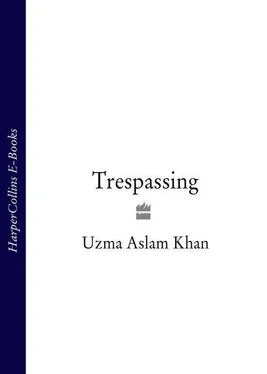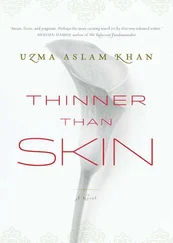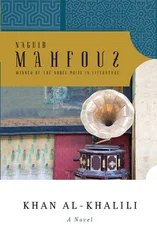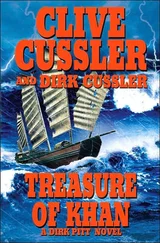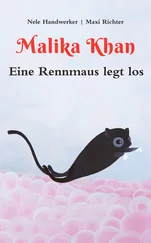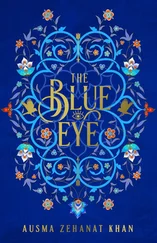Daanish took a deep breath. ‘That may be true. But whatever it was your parents or grandparents had to put up with, the fact is that you never did. Now you’re not the persecuted any more, so don’t turn to that every time your country screws another. People who fled here to escape being dumped on are now doing the dumping. Still you think of yourself as the victim.’
‘I didn’t say I do. I just said that Americans know what it’s like.’
‘And I’m saying you don’t. You don’t. Even if your forefathers did. Yet you want the kind of news that says you do. You want to hear about being wronged. Not about who you’re wronging. A bombing raid kills hundreds in Panama or Iraq, it’s not even on the news. But an American is harassed anywhere outside the States and it’s the lead story on every network.’
Liam flicked his hair back. ‘I’ve got class.’
‘That’s why you care nothing about breaking international laws or the effects of the sanctions. They hate you, remember? So it’s okay to kill them.’
He walked away.
Seven months later, when Daanish’s father died, Liam insisted on dropping him off at the bus station. Daanish wondered how he’d found out, but didn’t ask. He liked to think that in the months of estrangement, indirectly, Liam had still enquired after him.
As he mounted the bus, Daanish knew Liam was trying to catch his eye.
‘I’m really sorry, man,’ he said.
Several thousand deaths couldn’t make him remorseful, yet Daanish’s father’s death could. Still, he was glad to have his friendship again, though he never told him that.
AUGUST 1992
None of his old friends were in Karachi any more. They were in the US, either doing summer internships or pretending to. Anything so they didn’t have to come back. Literally, anything. Two friends in New York City toiled in the subway, one in a mezzanine news-stand, the other as a ticket-seller. It was risky work, sometimes worse than a taxi-driver’s. Anyone attempting it was an immigrant, or an immigrant-aspirant. Either way, an alien. Was that better than this? Better than knowing the house at least was yours and the meal waiting? Was the future here even more uncertain than in the NYC underground?
Outside, the house under construction stood sopping and unattended. The workers had stopped coming since it began to rain. He’d seen Salaamat walk around the skeletal foundation once during the downpour, perhaps missing the cups of tea he’d shared with the old worker in the late afternoons. He’d not come back, yet Daanish still looked out for him, feeling he was there, and maybe even wishing it. That was how little there was to do.
Each time he saw Anu, she reminded him that their savings would last eight, maybe nine years. But then she’d kiss and bless him, saying her son was her insurance.
Some insurance: he was a sack of useless bones. The doctor was right. He’d chosen the wrong profession. You will spend your life fighting others then come back here only to fight your own. Think! He had the statistics for murdered reporters. And for those jailed. And for presses destroyed. When he shared these with Anu he knew she hadn’t listened. She watched her own crickets: she plotted his marriage. He remained supremely indifferent to her antics, as if the plot revolved around someone else. Someone he used to be, but no one she knew. And no one his father would ever know.
He sat with the lacquer box on the dirty white rug. The crickets hopped aside as he stretched his legs. Once again when he looked inside his father looked back. He was perhaps his age. No sign of balding, no sign of anything really except happiness. Daanish squinted, wondering at the building in the background. The photo probably dated from his father’s student days in London. Not a doctor yet. Not a groom yet. Something about the way the scarf fluttered and the nose reddened made him smell the crisp autumn air of Massachusetts. Even the brownstone tower, the neatness of the green grounds sweeping to the right of the frame — it could have been downtown Southampton or Springfield in not England but New England. It could have been him and Nancy, or Becky.
While examining the photograph, Daanish remembered the ones of his parents on their wedding day. Where were those black and white prints that used to be on the table near the doctor’s chair? There’d been the groom in a pavilion strewn with rose petals. Beside him, his shriveled father, still devoted to Pakistan’s first English-language newspaper. The doctor’s long-suffering mother pressed against her sixteen-year-old daughter-in-law, whom she offered a cup of milk. Four on a couch with a curtain of roses around them. A groom with an MD from London! Dr Shafqat, the rising, dashing star. The photographers clicked and clicked.
In another, the doctor drank from the cup his mother presented him, exactly where Anu’s lipstick mark must have been. The photo didn’t show the mark but that was their first kiss: on a china cup. Wasn’t it worth savoring? Apparently Anu didn’t think so. Yet, though she turned her back on that day, she wanted to duplicate it for her son so now she could hold the china cup.
Shaking his head, Daanish put the box away.
It was only drizzling softly now. When he returned to the window, a man walked through the cavities of the unfinished house. He was creeping forward like a chambered nautilus, sealing the smaller spaces, carving larger ones with each stride. A man with hands clasped behind him and a cloth around his head. The wind licked his kameez as his shadow stretched from one concrete division to the next.
Maybe it was the worker who wanted the visa. No, he was too short. It must be Salaamat. He was glad the last few times with Dia they’d not used him: he’d seen too much already. It was not simply infuriating but humiliating. How dare he look at her — he who probably never had a woman unless he paid for it! His presence put Daanish in the same league. If his eyes tainted Dia, they completely soiled him.
It had been days since he and Dia last met. Though he wanted her, he could wait. She wasn’t going anywhere. It was pleasant to think of that. She’d be pacing the spaces of her own mansion, hands behind her back, thinking of him. It seemed she kept an ear out for the phone to ring. When he called, she almost always answered, with a delightful pant, as though she’d run to him. He was beginning to like the fact that his time with her was infrequent. It was hard to get, hence more intense when he got it. And when, such as these days, he couldn’t, it was all he had to look forward to. So did she. There were no other distractions. No catching matinees, or tunes at a club. She waited for him. She counted the minutes. She ran to the phone. She wasn’t running into boys on her way to the laundromat. She was always indoors. And even within, her space was heavily guarded. If he had to enter her world with caution, well, so did everyone else. It left him feeling exquisitely secure.
The reclusive shadow did not reveal itself and Daanish turned to the drawer where his shells used to be. There was nothing there now except the silk thread. He picked it up. A few particles of sand remained from the time he’d taken it to the cove to show Dia. Maybe he’d call her later today. Maybe he wouldn’t.
Two days later, when the rain finally halted, a lean sunlight gradually commenced soaking up the runoff gutter water in his street. Daanish decided to do something for Anu. He’d go to the Housing Society water office and bring home a tanker. It would get him out of the house, please Anu, and even make a good bit of news. He could finally tell Liam what he was doing here.
Читать дальше
Конец ознакомительного отрывка
Купить книгу
